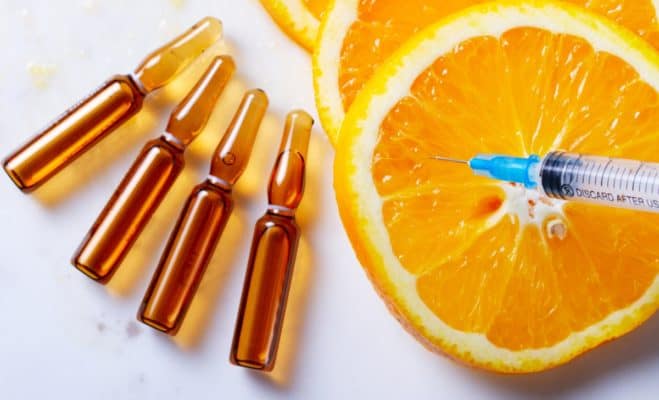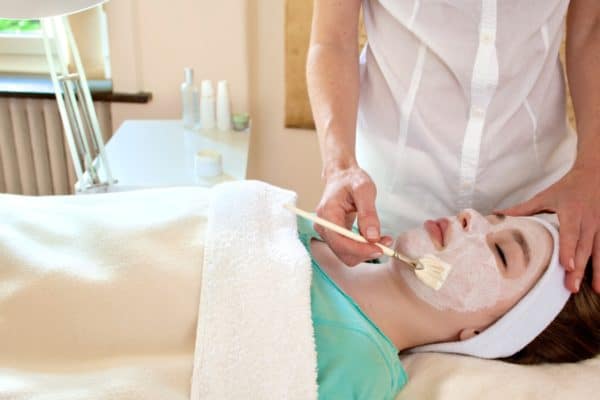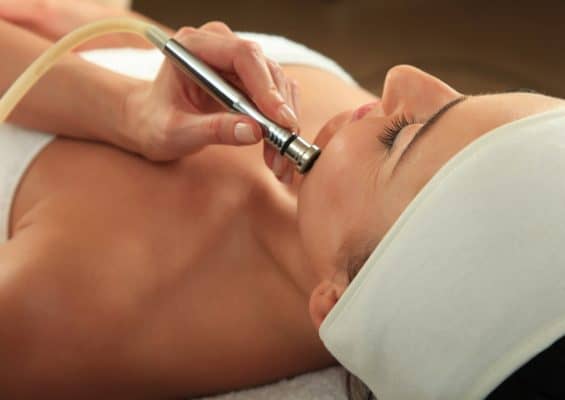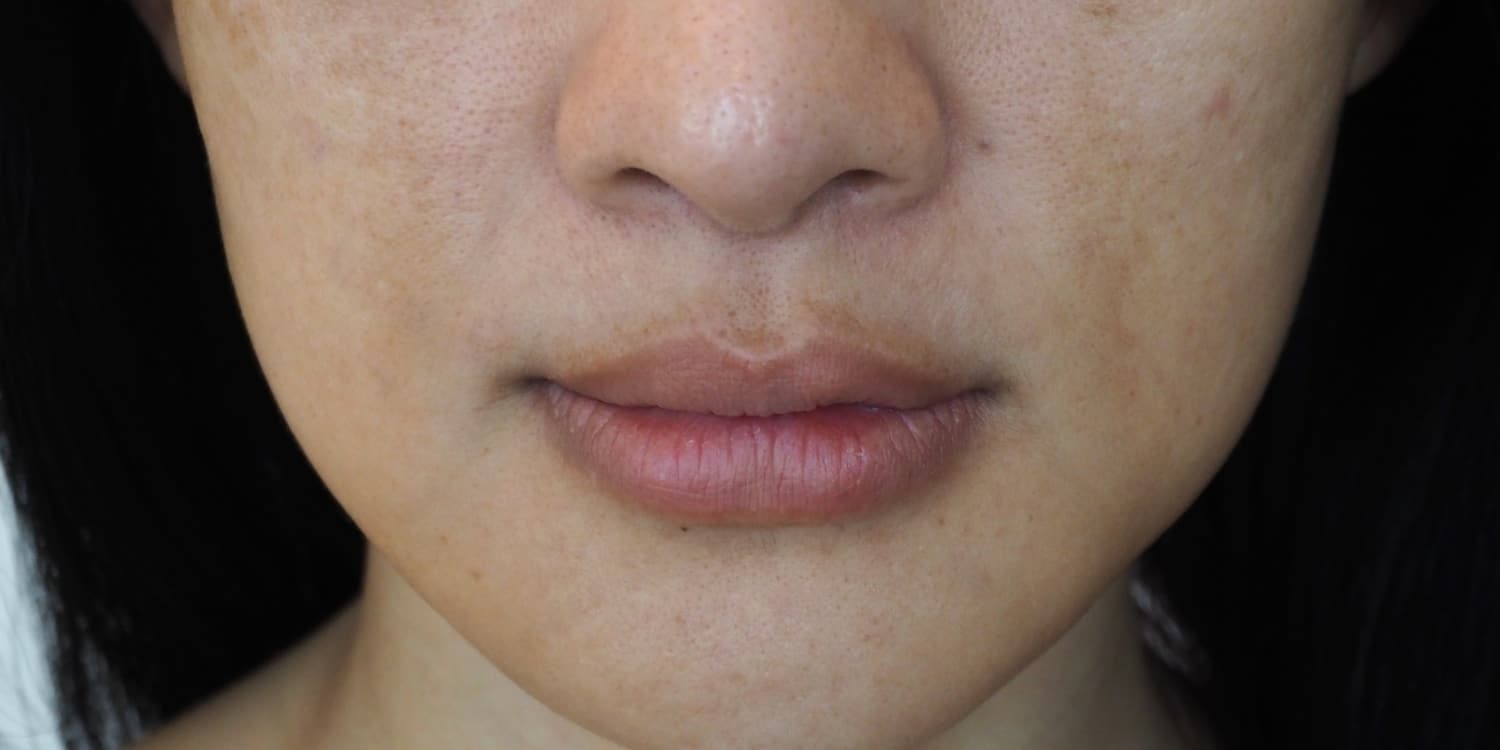Do you have dark spots that keep following you after acne?
Have you ever wondered if you can remove those post-acne marks?
In this article, I’ll explain why you get dark spots following acne and show you 5 effective treatments to get rid of them (and what to avoid).
Let’s get started!
What Causes Dark Spots?
First, it’s important to understand why you’re getting dark spots.
In your skin, there are these special cells called melanocytes that produce a pigment known as melanin. Melanin is what gives your skin its color and it serves important functions like protecting skin cells from the sun’s ultraviolet radiation.
While critical to our skin health, excess melanin will produce dark spots or patches of skin that look “out-of-place”. This condition goes by many names – hyperpigmentation, discoloration, uneven skin tone, etc.
But why do dark spots conveniently form following acne?
In short, it’s because the inflammation associated with acne triggers melanocyte cells to work harder and produce more melanin. This, in turn, results in dark spots that remain visible long after your pimples have healed.
5 Effective Treatments for Dark Spots
Fortunately, there are many options for treating hyperpigmentation, including:
- Vitamin C
- Retinol
- Chemical Peels
- Skin Lightening Creams
- Microdermabrasion
1. Vitamin C
A staple in the skincare industry, adding vitamin C to your daily routine is one of the best ways to combat dark spots.
Extensive research has shown that vitamin C inhibits melanin production by slowing down an enzyme called tyrosinase (required to make melanin).
This means overactive melanocytes will gradually produce less melanin. As a result, your post-acne marks can start fading away as new skin cells replace pigmented ones.
Vitamin C is also a powerful antioxidant and can help prevent dark spots by shielding your skin from the sun’s harmful UV radiation.
When shopping for vitamin C serums, look for L-ascorbic acid (also called pure vitamin C). This is the most potent and effective form as your body can use it directly.
If you’re on a budget, vitamin C derivatives like sodium ascorbyl phosphate and ascorbyl glucoside are both great alternatives but less potent than L-ascorbic acid.
To learn more, check out the best vitamin C serums for hyperpigmentation.

2. Retinol (Vitamin A)
Retinol is part of the retinoid family (a class of vitamin A derivatives) and is used in many anti-aging and skincare products.
You might be familiar with retinoids already – Accutane (Isotretinoin) is an oral retinoid prescribed for severe acne while Tazorac (Tazarotene) is a gel-based retinoid for topical acne treatment.
Retinol is the strongest type of retinoid available without a prescription and works by increasing cell turnover and inhibiting tyrosinase functions.
This allows new skin cells to replace pigmented ones for brighter and more even skin tone.
Using retinol will increase the penetration of other skincare products, so be careful not to overdo it. Speak to your dermatologist before using retinol with acne products like benzoyl peroxide or salicylic acid.
Retinol also increases your skin’s sensitivity to sunlight, so make sure to use a broad spectrum sunscreen in the daytime.
3. Chemical Peels
Similar to retinol, chemical peels work by accelerating the rate of cell turnover.
Popular peels like glycolic acid, lactic acid, and salicylic acid penetrate the epidermis to “unglue” the bonds between dead skin cells and encourage faster exfoliation.
The result is brighter overall skin tone and less noticeable dark spots as more pigmented skin cells are shed in the process.
Both dermatologists and estheticians offer chemical peels of various strengths and will assess your skin’s suitability before recommending a peel.
Make sure to follow post-peel best practices by keeping your skin moisturized and applying a broad spectrum sunscreen in the daytime.
If you prefer a DIY route, start with a mild peel like lactic acid or mandelic acid. The Ordinary makes excellent and inexpensive versions of both peels (I use them myself!).
To learn more, check out the best chemical peels for hyperpigmentation.

4. Skin Lightening Creams
There are countless creams on the market that claim to brighten your skin tone and fade away your dark spots. The real question is: which ones actually work?
While creams are often cheaper than vitamin C serums or chemical peels, keep in mind that the concentration of active ingredients is usually lower. This means it may take longer before you can start seeing visible improvements.
As for the ingredients, look for some of these clinically proven ones on the label:
- Niacinamide (Vitamin B3):prevents new skin cells from receiving melanin
- Azelaic Acid:inhibits tyrosinase and reduces uneven skin tone
- Kojic Acid: a natural brightening ingredient derived from fungi
- Beta Arbutin: an extract from bearberry plants with brightening properties
- Alpha Arbutin: a synthetic derivative of beta arbutin that is more powerful
- Mulberry: was found to improve hyperpigmentation in melasma patients
- Licorice Root: contains two extracts (glabridin and liquiritin) with strong anti-tyrosinase properties
To learn more, see my review of Meladerm, a popular skin lightening cream that contains all of the above ingredients.
5. Microdermabrasion
If you don’t have the time to follow a daily skincare routine, then microdermabrasion may be a good choice for you. It can be done at most salons, spas, and dermatologist offices.
In this procedure, tiny crystals (aluminum oxide or sodium bicarbonate) are blown onto your skin to lift away dead skin cells, before being sucked back into a machine.
This process provides a gentle exfoliating effect while being quick and painless. The results are mild but you can start seeing brighter skin (and fewer dark spots) within a few sessions.
Aside from seeing a professional, there is a DIY option as well – buying a personal microdermabrasion machine can save you time and money in the long run.

What To Avoid: Hydroquinone
Now, let’s discuss what to avoid for hyperpigmentation: hydroquinone.
Hydroquinone is a controversial ingredient used in many dark spot correctors and skin lightening creams. It has been banned in the European Union, Japan, and Australia.
So why is it controversial?
Well, some medical studies have linked hydroquinone to cancer in rodents, although this has not been shown in humans yet.
In addition, there have been reports of hydroquinone causing exogenous ochronosis (skin darkening) in South Africa, the UK, and the US, from its use in skin whitening creams.
In 2006, the US Food & Drug Administration (FDA) proposed to ban all 2% hydroquinone products due to these safety concerns. However, this has not been finalized as the FDA continues to conduct studies and gather data.
Meanwhile, some companies have stopped using hydroquinone but there are still many products that contain this ingredient so make sure to read the label carefully!
To learn more, see this review of the medical data on hydroquinone safety.
Do Natural Remedies Work for Dark Spots?
You’ve probably seen many natural remedies advertised for hyperpigmentation treatment. However, many of these don’t have adequate medical evidence to support their claims and some are even harmful to your skin!
Here are some of the most popular options:
- Turmeric: this plant provides the spicy taste in curries and has anti-inflammatory properties. One split-face study showed that turmeric cream improved dark spots better than an unknown control product. This means DIY turmeric masks may help with your hyperpigmentation but further studies are required.
- Rosehip Oil: this essential oil is pressed from the fruits and seeds of the rose plant and is a natural source of vitamin C (which may explain its skin brightening properties). Studies have shown that rosehip oil inhibits melanin production both in vitro and in vivo on mouse melanoma cells and guinea pigs, respectively.
- Lemon Juice: you might think that lemon is abundant in vitamin C but before you go rubbing it over all your face, consider that a typical lemon only contains 0.04% L-ascorbic acid compared to 5-15% in vitamin C serums. Lemon is also highly acidic (pH 3) and may cause skin irritation and increased sun sensitivity.
- Apple Cider Vinegar (ACV): despite its popularity as a “miracle” cure for everything, there is no evidence that ACV improves hyperpigmentation. The only medical studies so far have focused on the health benefits of drinking ACV. In addition, at least one case of chemical burns following ACV use has been reported.
- Tea Tree Oil: this essential oil is known for its antibacterial and anti-inflammatory abilities and is used for everything from acne treatment to fungal infections. The clinical evidence for hyperpigmentation, however, is seriously lacking. Notably, studies have yet to connect tea tree oil with a mechanism for melanin inhibition.
Conclusion
Dark spots naturally fade over time but if you don’t like to wait around, try using one of these effective treatments and wave goodbye to those last reminders of acne!



